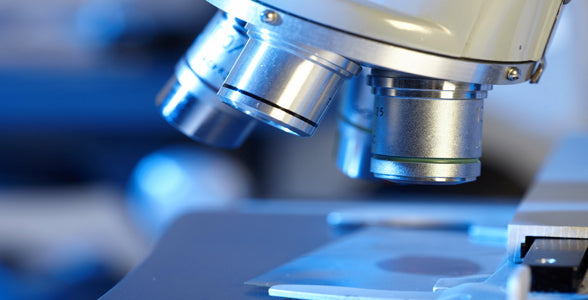
What is Protease?
Share
October 3rd, 2018
The Importance of Protein
Protein is generally hailed as one of the “building blocks” of the human body, being an essential component in many bodily structures as well as bodily processes. However, like every other type of nutrient, we need to be able to extract it from either our diet or another source. The main way that our bodies do this is through enzymes, and in protein’s case, the primary enzymes that get the job done are proteases, also known as peptidases or proteinases. Notably, both plants and animals rely on proteases for daily function, and this fact may actually be relevant for your health, as we will explain.1
The Role of Protease
Compared to lipase and amylase, which break down fats and carbohydrates, respectively, the protease family has more extensive roles. Yes, protease helps break down protein in food into amino acids, which the body can then use for energy, but where proteases stand apart is the fact that they also play a number of other roles in essential processes, such as:- Blood clotting
- Cell division
- Recycling of proteins
- Immune support
Choosing the Appropiate Protease
So now that we know all that proteases can do, where can you get them from? As mentioned earlier, both plants and animals have proteases, and in some cases, incorporating plant enzymes is a great option. Two popular proteases that come from plant sources are papain from papayas and bromelain from pineapples. Both of these have been used for their ability to break down proteins for centuries, but as a meat tenderizer, not for health reasons.6 These are two of the most popular food sources, but there are others as well, such as ginger, asparagus, kiwifruit and kimchi. Another option is getting proteases from supplements for a variety of health support functions. For example, using protease in a plant-based digestive formula, will help with nutrient absorption while supporting digestive function; However, proteases are also used to help address excessive mucus due to allergies or temperature changes.
One should note that there are many proteases, so it is important to choose the appropriate protease for a particular issue. When it comes to getting more proteases through supplemental means, it’s important to find the right fit for your client. There are two options to choose from, as proteases are available in digestive or systemic / therapeutic formulations. The former is taken with food and the latter, in most cases, is taken away from food. Please contact your Enzyme Science Representative for more information about the options that are available.
- Hartl M, Giri AP, Kaur H, Baldwin IT. The multiple functions of plant serine protease inhibitors: defense against herbivores and beyond. Plant Signal Behav. 2011;6(7):1009-11.
- Mótyán JA, Tóth F, Tőzsér J. Research applications of proteolytic enzymes in molecular biology. Biomolecules. 2013;3(4):923-42.
- C. Ciacci, F. Franceschi*, F. Purchiaroni*, P. Capone**, F. Buccelletti*, P. Iacomini*, A. Ranaudo**, P. Andreozzi**, P. Tondi#, N. Gentiloni Silveri*, A. Gasbarrini°, G. Gasbarrini§. Effect of beta-Glucan, Inositol and digestive enzymes in GI symptoms of patients with IBS. Eur Rev Med Pharmacol Sci 2011; 15 (6): 637-643
- Udani JK, Singh BB, Singh VJ, Sandoval E. BounceBack capsules for reduction of DOMS after eccentric exercise: a randomized, double-blind, placebo-controlled, crossover pilot study. J Int Soc Sports Nutr. 2009;6:14.
- Al-khateeb TH, Nusair Y. Effect of the proteolytic enzyme serrapeptase on swelling, pain and trismus after surgical extraction of mandibular third molars. Int J Oral Maxillofac Surg. 2008;37(3):264-8.
- Bekhit AA, Hopkins DL, Geesink G, Bekhit AA, Franks P. Exogenous proteases for meat tenderization. Crit Rev Food Sci Nutr. 2014;54(8):1012-31.
- Mcdermid AS, Mckee AS, Marsh PD. Effect of environmental pH on enzyme activity and growth of Bacteroides gingivalis W50. Infect Immun. 1988;56(5):1096-100.


